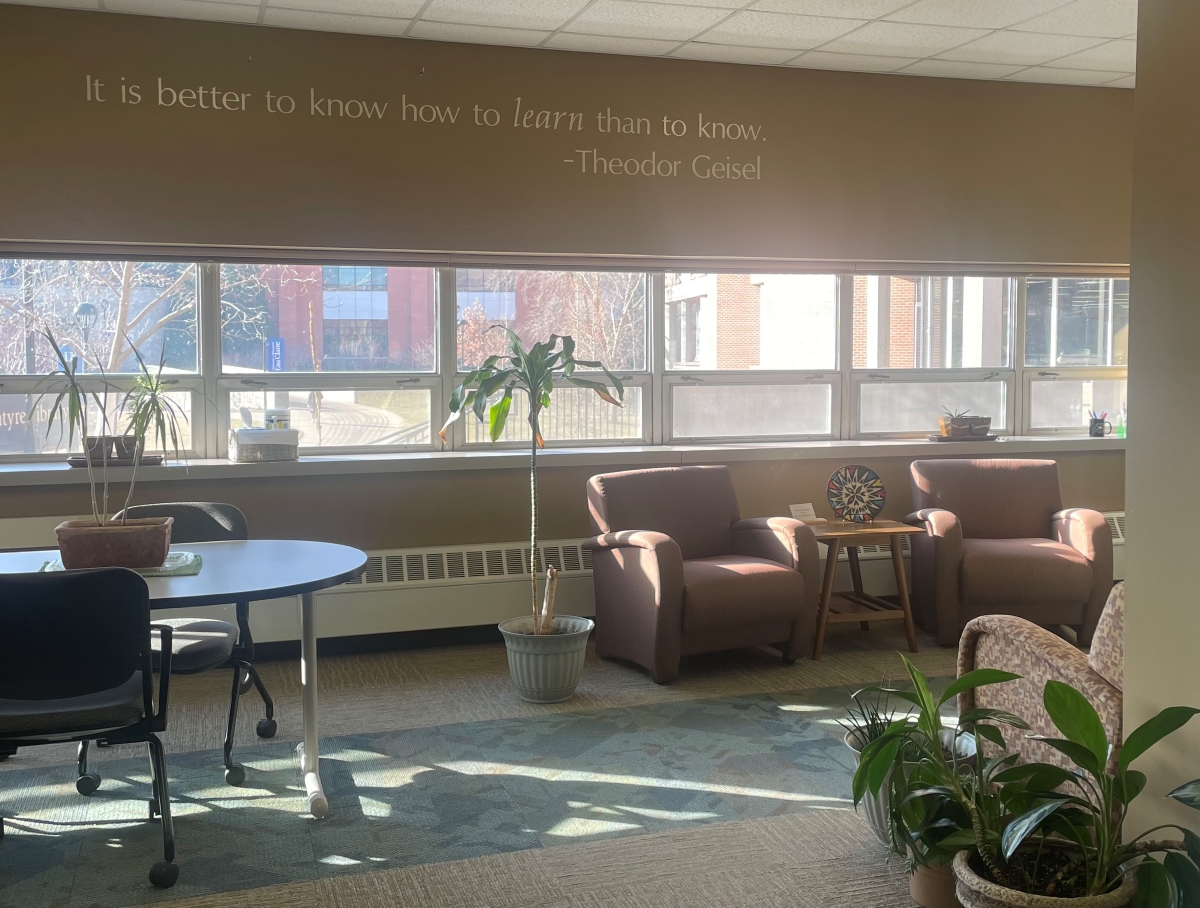Editor’s Note: Britt Hakes uses she/they pronouns, but she/her pronouns will be featured for clarification purposes.
On Feb. 22, the Mental Health Resource Group (MHRG) for UW-Eau Claire faculty and staff had their second-ever meeting in the Center for Excellence in Teaching and Learning (CETL) Room 1142 of Vicki Lord Larson Hall.
In this specific meeting, they promoted Random Acts of Kindness Week and shared ideas on making time for yourself with self-care and other mindfulness boasting.
MHRG is one of the first official resource groups for faculty and staff on campus. Britt Hakes, HR generalist and data analyst in the HR office, said it has been a slow start since the group started this school year with the struggle of getting the word out on campus.
Hakes originally had the idea because of the lack of mental health resources for staff since the start of the COVID-19 pandemic and current political environments, and she wanted to provide resources for those who did not know where to find them.
“There’s definitely an area for growth when it comes to mental health,” Hakes said. “I feel on campus, there’s that opportunity for us to be able to connect staff with resources like Employee Assistance Program, or just giving helpful information about things.”
Samantha Lorenz, an Institutional Research Office analyst at UW-Eau Claire, said when she started working for the university she had trouble meeting people and this was a great opportunity to make connections.
“I first started working here in early July, and something that I struggled with was I did not know anybody,” Lorenz said. “In joining the Mental Health Resource Group meeting for it, meaning literally, I’ve made a lot of new friends.”
To promote self-care, the group provided bingo cards with various activities. Lorenz said many people had difficulty working it into their busy schedules, whereas some people had no issue completing the board.
MHRG has many resources available to staff based on what mental health theme was discussed at the previous meeting and for different types of disorders they may be struggling with.
Hakes created a Microsoft Teams channel where people can join while at the meetings. In the channel, they have many different resources linked.
There is also a channel where, if someone is looking for a buddy to attend an event with, they can ask if anyone is available and willing to go.
Some resources they offer are often for the EAP, helpful information regarding disorders and how to identify them as well as helping how to connect with people since the beginning of the COVID-19 pandemic.
“But whether it’s disorders, or ADHD or anything like that,” Hakes said. “It could even be as small as getting out and connecting with people. I know after COVID, it was a little challenging for people to connect with each other.”
Lorenz said faculty should not feel pressured to join, but it is low-stakes and advised them to come.
“Please come, it’s so low pressure you literally can just show up and not say a word to anybody,” Lorenz said. “It’s a super helpful environment. I think anybody, even if you might not struggle with mental health, or struggle with self-care it can be beneficial for everybody.”
Boggess can be reached at [email protected].








